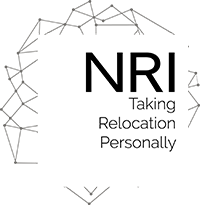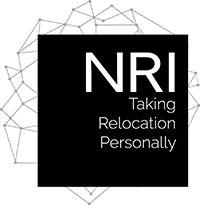For those of us in the relocation industry, the 2017 holiday season will be remembered as one of those signature “do you remember when” times in our professional careers. On December 22, President Trump signed the largest U.S. Tax Reform bill in a generation and made it effective just nine days later starting in 2018.
Alarming to many of us, the taxability of certain moving expenses were directly targeted in the new law. Household goods and final move trip benefits – which had been excludable and non-taxable for years – were now going to be taxable benefits to employees. Despite industry political lobbying and urgent calls to action, the tax law for relocation benefits officially changed with President Trump’s signature.
Conventional industry wisdom – apparent from the calls to action – is that Tax Reform will be negative for the relocation industry. With household goods and final moves now taxable, the cost of a corporate relocation program is going up due to increased tax gross-up expenses. And that would – in theory – make companies re-think their programs and consider downsizing the number of relocations they have in order to offset the overall increased program cost.
While it is true that the cost of a relocation program is going up as a stand-alone corporate line item, I believe Tax Reform could actually be good for the relocation industry in the long run. Here are my top three reasons:
1. Surge In Relocation Volume Due to U.S. Corporate Expansions
While the new tax law will likely increase the cost of having a relocation program, the reduction of the U.S. corporate income tax rate to 21 percent (down from 35 percent) could trigger a significant U.S. economic growth surge. S-Corp pass-through tax liabilities to shareholders were also reduced. These reductions will likely positively affect both U.S. domestic relocations and inbound global relocations to the U.S.
Since the legislation was signed, numerous companies have announced plans to invest their corporate tax savings into new developments and expansions. Exxon Mobil, for example, said it plans to invest an additional $35 billion in the U.S. over the next five years. Apple announced that it would contribute $350 billion to the U.S. economy over the next five years and bring back some of its overseas finances.
While these are major examples from big name brands, the larger economic effect is clear from these decisions: companies are ready and willing to invest. And when companies invest, they usually expand operations as a result of that strategy. Key talent will be needed to run these new operations, and that promotes the movement and relocation of employees.
It is not hard to see how that bodes well for our industry. So while the cost of a relocation program may go up, it may be more than justified by the need to relocate key talent to support these new and profitable strategies.
2. Surge in Talent Management Strategies that Benefit Employees
Companies are also now ready to invest in talent management strategies that benefit employees. There have been countless examples recently of companies offering bonuses and stock options to existing employees because of Tax Reform – from AT&T to Home Depot to Disney.
While there is certainly a positive PR angle to some of this, the talent management strategy decided by these companies does in fact benefit their employees. It proves they are looking at employee benefits and deciding how the reduced corporate tax burden can lead to better benefits throughout the organization. And, how this can help them attract and retain talent.
This type of thinking bodes well for the relocation industry, since relocation offerings are benefits to employees. There has always been the Finance vs. Human Resources battle regarding relocation. Generally speaking, Finance wants budgets and limitations, and HR wants freedom to deliver the most brand-worthy relocation experience. With lower corporate tax liability, HR is now in position to win their side of the argument. Anytime companies are thinking about providing better overall benefits to attract talent, it is a positive step for the expansion and surge of relocation benefits.
3. Surge In Relocation Home Sale Programs
With household goods and final move expenses now taxable benefits, the only non-taxable relocation benefit remaining is the corporate home sale program – Buyer Value Option (BVO) or Guaranteed Buyout (GBO). For cost-conscious companies looking to maximize the purchasing power of their relocation budgets, going “all in” on a BVO or GBO benefit makes a lot of sense. This could lead to a surge in programs.
Consider a budget (gross-up included) of $50k for a homeowner with a $500k house. The company can only offer about $31k in actual relocation benefits (travel, household goods, temporary living, etc.) because the other $19k needs to be allocated for gross-up expenses. However, with a BVO or GBO home sale program, the company could offer up to $50k in actual home sale benefits (roughly 10% of the home sale price) because the cost is tax-protected. The transferee comes out ahead financially because their final home sale equity increases by the cost of the home sale program ($50k). In turn, they can use that extra equity towards purchasing household goods and temporary living themselves. Financially, they still come out ahead versus not having a home sale benefit at all.
Why is that good for the industry? Because it maximizes the purchasing power – or “actual benefit power” – of budgeted moves for industry services and promotes all types of benefits. Home sale programs are good for Relocation Management Companies (RMCs) because it formalizes home marketing services, which in turn, helps formalize real estate services for Realtors. RMCs will still source household good and temporary living options for the employee, with the only adjustment being the employee may pay for the service directly from their increased equity. For budgeted moves, home sale programs allow for maximum “actual benefit power” that further helps employees move more effectively. This ability to buy more relocation services is good for the industry.
Conclusion
Late last year, it was easy to fall prey to the nervous talk about how Tax Reform would negatively affect the relocation industry. I hope the points shared here have made you somewhat re-think that position. However, what do you think? Do you agree or disagree? Please email me to talk more.

John Zilka, President


